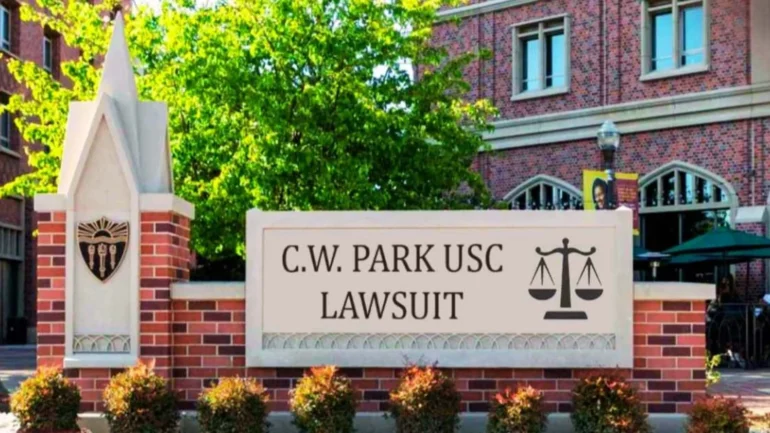The C.W. Park USC lawsuit has serious allegations versus the works of Dr. C.W. Park USC lawsuit is one of the biggest marketing professors at the University of Southern California (USC). This is a huge concern regarding the alleged cases of misconduct led by Dr. Park, but it also brings much more to the light concerning any institutional policy regarding higher education, specifically how universities are supposed to handle complaints against faculty and protect students from abuse.
This case, over the years, has rekindled important debates over academic freedom and procedural due process within university systems as Dr. Park alleges that USC mishandled the allegations and did not afford him proper procedural rights. The lawsuit puts forward some concerns concerning balancing academic freedom – a core principle that allows professors to teach and research without undue interference with the need for accountability when allegations of misconduct arise.
This case has therefore pushed USC, like institutions, and faculties to review new reporting mechanisms with respect to harassment and misconduct claims against faculty members. Universities, henceforth, will need to balance the protection of their communities and the rights of their faculty members in creating an environment that balances trust and adherence to ethical standards.
C.W. Park USC Lawsuit Background
Accused by several female graduate students of harassment and other forms of inappropriate behavior dating back to the early years of the 2000s, Dr. Park has made major contributions to the knowledge of consumer behavior. They reported unwelcome advances, sexually suggestive remarks, and retaliatory action against a student who refused to adopt such behavior. These early accusations have USC make promises to investigate. However, nothing happens immediately to Dr. Park. This led to criticism over the response from USC and further momentum in addressing issues with faculty misconduct at university campuses.
Legal Proceedings and Claims
The C.W. Park USC lawsuit is composed of several causes of action. For one, some students filed a complaint against USC on the claim that it failed to protect those students by tolerating Dr. Park’s continuous perversion. On the other hand, Dr. Park filed a complaint against USC that it handled his complaints and deprived him of his right to due process.
The public discourse has highlighted the need for debate on issues such as:
- Due Process: In consideration of USC procedures in dealing with the complaints, Dr. Park argues that they did not pass even the most minimal standards of due process, which are indispensable to any administrative or legal investigation. Here, the university acted in a biased manner, with inadequate opportunities to counter the allegations against him.
- Academic Freedom: The C.W. Park USC lawsuit is a case that raises very basic issues about academic freedom and the right of faculty members to pursue their research and share academic views free of institutional interference. Thus, for instance, Dr. Park claims that his professional autonomy was undermined with implications for his ability to teach, publish, and contribute professionally.
- Breach of Contract: USC is accused by Dr. Park of breaching the terms of the contract in the manner of his termination. He claims a violation of his employment contract, which would have been incompatible with his right to a fair and transparent disciplinary process.
Institutional Accountability and Reforms
After the C.W. Parl USC lawsuit and public criticism, USC implemented reforms that ensured no such incident would occur again. Such measures included creating clearer reporting mechanisms and enhancing Title IX protocols. The university also made training for faculty members and students obligatory to avoid harassment. To further seal the commitment, the university settled the case with $215 million in 2018 for students affected by the abuses against them, one of the largest Title IX settlements for a sexual misconduct lawsuit.
Broader Implications of the C.W. Park USC Lawsuit
The C.W. Park USC lawsuit carries far-reaching implications to affect learning institutions all over the United States. It has heightened the bar for all learning institutions in that they must have policies and procedures at faculty misconduct levels. More importantly, it heightened recognition of the need for institutions to establish transparent disciplinary processes that protect the rights of students while also offering the rights of the faculty. The C.W.Park USC Lawsuit case also throws light on the role of universities in ensuring student safety and the more subtle balance needed to safeguard academic freedom while retaining the minimum standards for professional conduct.
Possible Consequences
Based on the C.W. Park USC lawsuit, depending on what happens next, several scenarios can be expected:
– Settlement: USC and Dr. Park may settle with a monetary settlement consisting of damages and certain terms on the rights of faculty or conduct standards.
– Court Ruling: In a negative result, it would be safe to say that the verdict would redefine faculty rights, and that judgment would be there to forge policy in all higher education institutions.
– Institutional Reforms: Irrespective of the verdict, USC and other schools will strive to formulate more policies to be able to keep their students safe and define faculty responsibility and rights.
FAQs
Q1: What are the main legal claims in the C.W. Park USC lawsuit?
There are three main claims raised in C.W. Park USC lawsuit due process, violation of academic freedom, and breach of contract. Dr. Park says that USC infringed upon his rights to due process by giving him disciplinary actions, interfered with academic freedom, and breached his employment contract.
Q2 How does USC respond to the C.W. Park USC lawsuits and allegations?
USC retaliated by revising its Title IX policies, improving reporting systems, and promising more openness relating to misconduct cases. The university also agreed to a $215 million settlement with former students who were allegedly affected by misconduct allegations within the institution.

